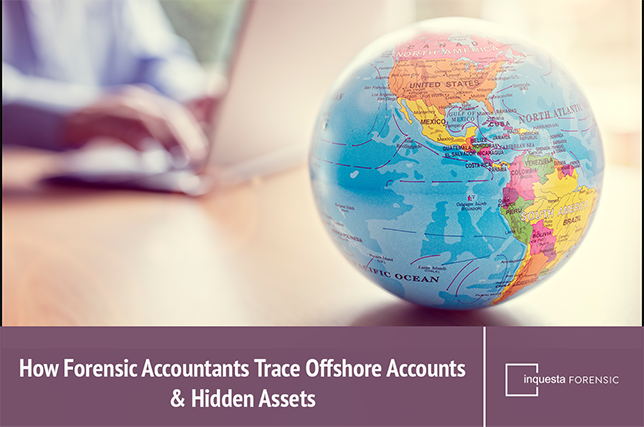In business, investigating financial fraud is crucial, as deception can lurk in the most unexpected places — from highly sophisticated money laundering schemes to intricate embezzlement operations.
Financial deception costs UK businesses billions each year. If you suspect some wrongdoing, or if irregularities emerge, a forensic accountant can step in and utilise specialised skills to help unravel even the most complex of fraudulent activities.
What is Financial Fraud?
So, what is financial fraud, and how does it relate to financial forensics and fraud investigation? Financial fraud encompasses a wide range of deceptive practices, each designed to obtain unlawful financial gain in some way. According to the National Crime Agency, fraud remains the most prevalent crime against individuals in England and Wales, accounting for around 41% in 2024.
Activities such as identity theft, accounting fraud, embezzlement, and cybercrime all qualify as financial fraud — each representing a misrepresentation or manipulation of facts and financial data intended to exploit another party.
The impact of such financial fraud — financial, psychological, and emotional — is significant and cannot be underestimated or overstated.
As regulatory scrutiny intensifies and legal consequences become more severe, understanding the multifaceted nature of financial fraud is essential for developing effective detection and prevention strategies.
10 Different Types of Financial Frauds: A Forensic Perspective
Understanding the full range of different types of financial frauds utilised by criminals is key for financial institutions (FIs) and consumers alike. Below is a streamlined breakdown of the most significant types of financial fraud to keep an eye out for:
- Asset Misappropriation: Theft or misuse of company resources (cash, inventory, expenses, etc.).
- Financial Statement Fraud: Manipulation of company accounts in order to deliberately mislead investors or regulators.
- Corruption: This can include bribery, kickbacks, and taking deliberate advantage of conflicts of interests for personal benefit.
- Money Laundering: Attempting to disguise illegal funds using a complex series of financial transactions.
- Identify Theft: Using stolen credentials or manipulation to access accounts you aren’t supposed to.
- Payment Fraud: Unauthorised transactions using cards, cheques, or online payments.
- Investment Scams: Fake or misleading investment opportunities. Ponzi schemes and fraudulent cryptocurrencies come under this umbrella.
- Consumer Fraud: Scams targeting individuals — such as mortgage fraud and false advertising.
- Tax Evasion: Falsified information in order to underpay on taxes or hide income/assets from HMRC and other authorities.
- Fake Charities: Scams aimed at exploiting crises to steal donations — or donor personal information.
Forensic Accounting and Fraud Investigations
With financial fraud estimated to be costing the UK economy over £38 billion annually, the need for expert-led investigations has truly never been greater. Inquesta Forensic specialise in uncovering the truth behind all manner of financial misconduct — whether you’re seeking justice or trying to defend against allegations.
Forensic accounting and fraud investigations involve specialist methods to bridge traditional accounting expertise with unique investigative techniques. However, unlike traditional accountants, professionals specialising in forensic accounting and fraud investigation possess additional training. As a result, they are able to::
- Root out and identify any financial discrepancies which could be an indication of fraudulent activity.
- Gather and assess financial evidence — meeting all legal standards.
- Conduct official interviews with any relevant parties that could support the case.
- Prepare expert reports suitable for court proceedings.
- Provide expert witness testimony in court, to present detailed information in as understandable and digestible a manner as possible, when a case reaches litigation.
The Forensic Fraud Investigation Process
The forensic fraud investigation process — central to all financial forensics and fraud investigation work — follows a systematic approach combining accounting expertise with keen investigative techniques to uncover financial deception. This methodical process includes four key phases: initial assessment, collection of evidence, data analysis, and litigation support — with each requiring specialist skills and tools to effectively identify and document fraudulent activities:
Initial Assessment and Planning
The process for a forensic accountant investigating financial fraud will always begin with a thorough assessment, in order to better gain an understanding of the specific allegations/suspicions involved with your case.
During this phase, forensic accountants will:
- Establish the scope and ultimate objectives of the investigation.
- Identify who the key stakeholders are — as well as any potentially useful sources of information.
- Develop a strategy for the investigation. This will be tailored to your specific circumstances as a one-size-fits-all solution will not apply in every single case.
- Create a timeline for all investigation-related activities. This will be shared with all relevant parties.
Evidence Collection and Preservation
When it comes to investigating financial fraud, simply collecting evidence in the proper manner is not the only important thing, it must also be handled appropriately in order to preserve both integrity and admissibility in court. To do so, a forensic accountant will typically:
- Secure both physical and digital financial records wherever possible
- Document the chain of ownership for all relevant evidence
- Obtain any potentially relevant documentation from third-parties through only proper channels.
- Preserve any metadata associated with electronic records. This includes digital assets in scenarios involving cryptocurrency fraud.
Data Analysis and Financial Forensics
The heart of not only forensic fraud investigation, but forensic accounting in general, lies in highly-detailed analysis of even the most complex financial data. Some techniques modern forensic accountant will utilise to assist in data analysis and financial forensic include:
- Data Mining: Utilising algorithms to detect patterns, anomalies, and relationships within extremely large databases.
- Digital Forensics: Recovering deleted files and assessing digital footprints
- Financial Statement Analysis: Identifying minor inconsistencies and red flags in reported figures
- Network Analysis: Mapping relationships and transactions between different entities to trace fund flows
From Investigation to Litigation Support
If a financial fraud investigation were to proceed to legal action, forensic experts are on hand to provide crucial support throughout the litigation process. Forensic accountants support financial fraud litigation in the following ways:
- Preparation of Expert Reports: Creating detailed reports to document the investigation. This should entail clearly presenting findings, quantifying damages or losses incurred, simply explaining complex financial concepts, and supporting claims with factual evidence at all times.
- Expert Witness Testimony: Acting as court-recognised financial experts in order to provide independent, objective testimony regarding complex financial matters. This should include explaining highly intricate transactions to judges and juries, and withstanding cross-examination if necessary.
Preventing Fraud Through Forensic Expertise
Beyond investigating financial fraud and supporting with litigation, forensic experts may also be instructed to assist organisations and individuals in preventing fraud before it occurs. They will do this by:
- Conducting thorough fraud risk assessments to identify any possible areas of vulnerability.
- Helping to develop policies and procedures aimed at preventing fraud.
- Training staff on fraud awareness best practices and detection techniques.
When to Engage Forensic Accounting Services
Solicitors, legal professionals, and individuals dealing with potential financial fraud should consider engaging specialist forensic accountants when there are any signs of:
- Financial irregularities or discrepancies appear within accounting records.
- Unexplained cash flow issues or revenue losses occur.
- Employee behaviour raises red flags (unusual working hours, lifestyle changes, etc.).
- Whistleblower allegations require more detailed and thorough investigation.
- Insurance claims exhibit suspicious patterns or documentation.
- Cybersecurity breaches which could potentially involve a financial theft element.
The Future of Financial Fraud Investigation
As with all things, financial fraud continues to evolve in both complexity and format. As a result, forensic accounting techniques must also keep pace with each trend. This includes:
- Artificial Intelligence: AI and machine learning capabilities, though still developing industries, can prove key in identifying even the most subtle patterns and anomalies in banks of data — signs that humans might miss.
- Blockchain Analysis: Knowledge of blockchain technology is becoming key as cryptocurrency-related fraud becomes more and more prominent with each innovation.
- International Collaboration: Cross-border cooperation is increasingly important as fraud schemes continue to transcend international boundaries.
The Critical Role of Forensic Accountants in the UK Legal Landscape
In today’s era of increasingly complex financial transactions and sophisticated fraud schemes, forensic accountants serve as highly valued allies. Their unique combination of accounting expertise, investigative knowhow, and experience in financial fraud investigations while preventing fraud make them key figures in navigating even the most challenging financial disputes and fraud investigations.
For solicitors handling cases where financial irregularity is suspected, early engagement with qualified forensic accounting professionals could be the difference between a successful resolution and prolonged litigation.
By partnering with experienced forensic accountants, you gain access to specialised tools, knowledge, and experience — factors that could prove pivotal in successfully uncovering financial deception and presenting evidence in court.
About Our Forensic Accounting Services
Inquesta Forensic provides comprehensive forensic accounting and fraud investigation services tailored to the unique needs of both legal professionals and their clients.
Are you in need of specialised support investigating financial fraud? Contact us today and find out how forensic accountants can uncover deception today.
This article is intended for informational purposes only and does not constitute legal or professional advice. For specific guidance related to your circumstances, please consult with qualified professionals.
- Your Partner’s Been Convicted: Can They Take Your House? What Section 10a POCA Means For You
- The Essential Role of Forensic Accounting in High Net Worth Divorce
- How to Value a Startup Business: A Guide for UK Entrepreneurs
- Pig Butchering Scams: Guide to Crypto Romance Fraud
- Shareholders’ Disputes: How Business Valuation Helps with Shareholder Dispute Resolution











